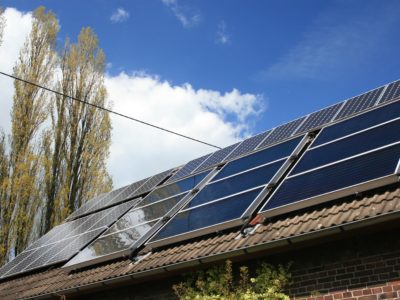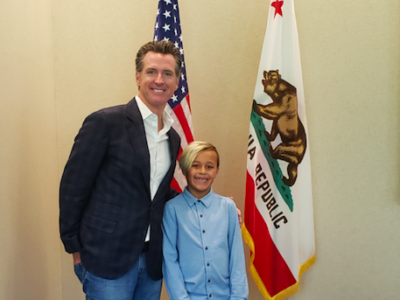Concealing Plutocracy
California’s battles over rooftop solar obscure the real culprits: Gavin Newsom and Silicon Valley billionaires

The LA Times’ inestimable Sammy Roth reports on the attempt of California’s investor-owned utilities to end “net metering,” whereby utilities must pay customers with rooftop solar for their excess electricity. Roth has been highly skeptical of the utilities’ drive: it’s an age of climate crisis, and the state’s Public Utilities Commission is going to reduce payments to homeowners with solar??!!
It’s a travesty of a mockery of a sham!
But not so fast: Roth acknowledges that NRDC, not generally known as a utility shill, supports the overall outlines of the proposal, although not necessarily the specifics.
What gives?
Well, here’s the problem: if utilities must pay fees to homeowners with solar – who tend to be somewhat more affluent – that means those funds aren’t available to cut the costs of electricity to lower-income people. And we will need lower-income communities to use electricity to get them into EVs.
Roth concludes by maintaining his skepticism, observing:
I can’t tell you how to feel. But I can point you to other analyses concluding that rooftop and large-scale solar are both needed — in huge quantities — to stave off the worst of the climate crisis. Even research funded by the rooftop solar industry and its supporters has found an enormous need for big solar farms, wind turbines and long-distance power lines.
So it seems that this is one those Hard Choices We Must Confront.
But wait a minute: Roth, undoubtedly because of the posture the issue is in now, neglected to mention one crucial thing. There is a way around that.
Proposition 30 on this past November’s ballot, proposed raising state income taxes by all of 1.75% for annual incomes over $2 million – essentially a few hundred (or maybe even a few dozen) millionaires. And one of the big things that the monies in the initiative would go to were subsidizing low-income people to get into EVs and developing the infrastructure for them to do so. Under current California law, the state will be nearly 1 million EV chargers short, and while there are subsidy programs for low-income people to purchase EVs, they are very small and thoroughly inadequate.
Well, that seemed like a good way to square the circle: raise the top rate in order to pay for the infrastructure. That way, we could have our cake and eat it, too: low-income people could get assistance and we could preserve net metering.
But of course Proposition 30 lost, and why? Because supposed climate hawk Governor Gavin Newsom decided to come out strongly against it, and lead an advertising campaign against it. His reason is pretty clear: Silicon Valley billionaires, who bankrolled his campaign and promise to bankroll his future Presidential ambitions, hated it. And it went down to defeat.
In other words, the choice now presented to the Public Utilities Commission – rooftop solar subsidies or environmental justice – is a false one. Green homeowners and EJ advocates have been set against each other by Silicon Valley billionaires and a Governor who cares more about his Presidential ambitions than meeting the state’s climate goals.
I don’t know what the PUC will do. But this whole issue symbolizes the pattern of American politics for most of my lifetime: the Top 1% (or even Top .1%) has managed to hoard wealth and income by setting everyone else against each other. And even in one of the bluest states in the country, they have done it again.

Reader Comments
3 Replies to “Concealing Plutocracy”
Comments are closed.






Right on Jonathan
There is also the possibility of community solar for folks who can’t afford their own solar installations, but those are constrained by the utilities as they must show they will not constraint the distribution grid. This is just the tip of the iceberg which is simply that the incumbent utilities are protected by the PUC despite causing fires and explosions and whose rate increases are approved by the PUC.
There’s a myth that rooftop solar doesn’t deliver benefits to all customers. The fact is that distributed solar is saving over $3 billion a year, in line with “subsidy” asserted by the utilities and their allies. (See https://mcubedecon.com/2022/02/24/has-rooftop-solar-cost-california-ratepayers-more-than-the-alternatives/) Unfortunately some of these underlying myths are perpetuated UC professors (https://mcubedecon.com/2022/06/21/what-rooftop-solar-owners-understand-isnt-mythological/)
I’m confused about the characterization here and elsewhere of net metering as a ‘subsidy’. According to what I’ve read, net metering in California means that the utility pays the homeowner (via a credit against the cost of utility-provided power)the retail rate for the electricity the homeowner produces. Why is that a subsidy rather than an exchange at the prevailing market price?